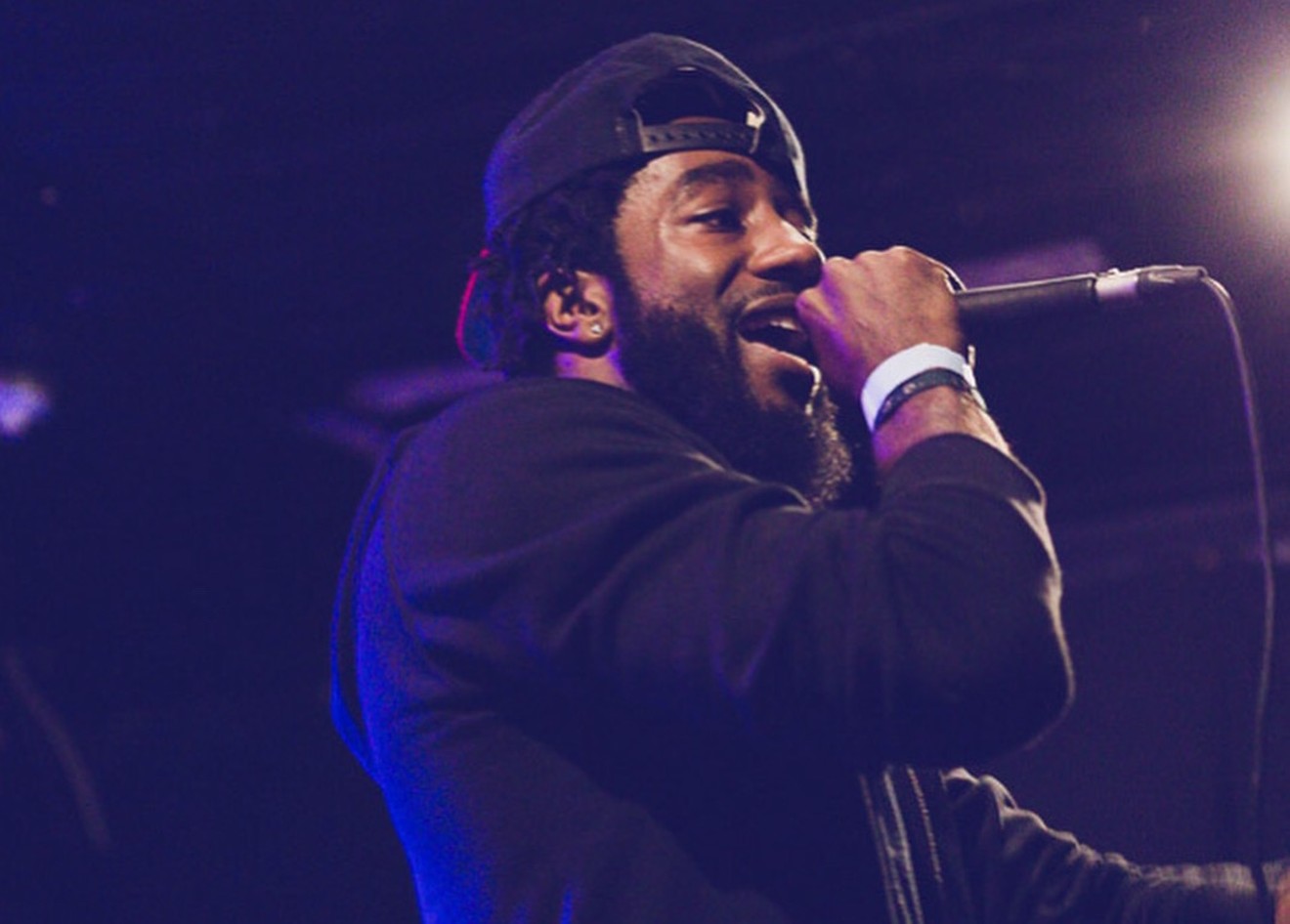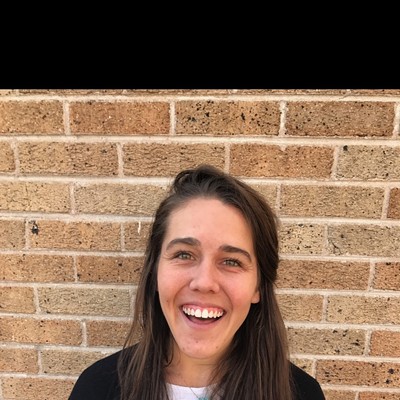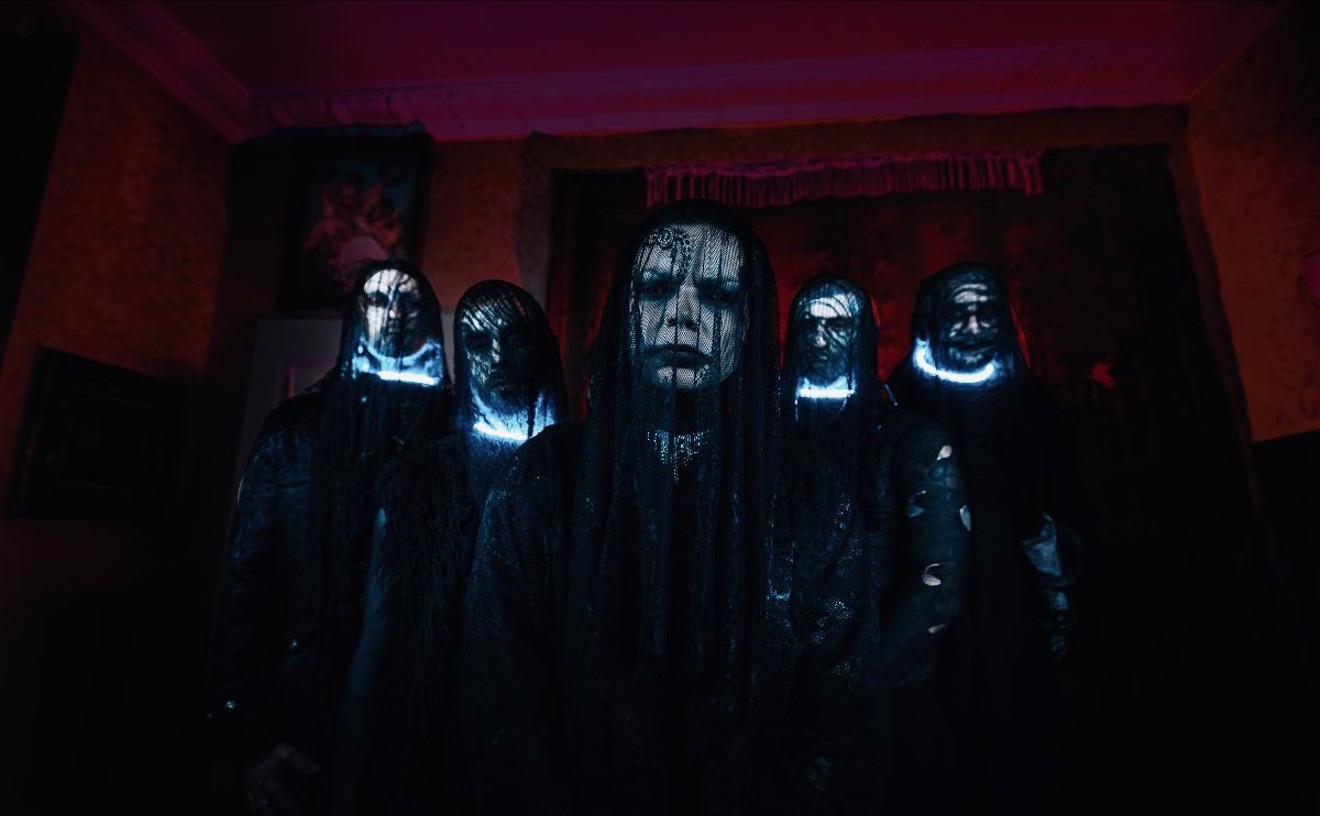Local rapper Clayton Goggins, who performs as Claygo, first rapped for fun with his brother on a karaoke microphone. After graduating from college, Goggins purchased equipment and continued experimenting with rap until friends and family pushed him to share his music with a wider audience. He released his second mixtape, Thinking Out Loud, this January.
In advance of his appearance at Globe Hall on March 11, we sat down with Goggins to discuss his new mixtape and how rapping is therapeutic for him.
Westword: Tell me about Thinking Out Loud and how it's different from your first mixtape. What went into it?
Clayton Goggins: I would say Thinking Out Loud is way different from my first one, because I feel like my first project was just a mixtape compiled of songs I was doing. It didn’t really have a direction. As far as Thinking Out Loud, I had a goal and concept I was trying to portray in it. Thinking Out Loud really gave me the freedom to speak whatever was on my mind at that time. I wrote a lot of the music based on looking at current events I was seeing, and watching the news and the police killing innocent, unarmed black males. So I did a lot about that, and I mention [Colin] Kaepernick kneeling; that [happened] around the time that I was writing this, so he gets mentioned a few times in it. And the whole Trump situation [laughs]; I could speak on that forever. So with this one, I really had a concept and knew what I was looking for compared to that first mixtape. It was songs that I had done, and I just wanted to put them out. But this time, I knew where I wanted to go and what direction I wanted to go with it.
How have you found rap to be helpful in processing? Is it an emotional, cathartic process?
Definitely, for sure, because music is therapeutic to me — not even just for myself, but music in general. Like when I listen to it, it takes me into so many different places, whether I’m listening to Isaac Hayes or Tupac or Kendrick Lamar or J. Cole or even Curtis Mayfield. If I hear it, it will take me to a certain time, a certain place, maybe when I first heard it or even just with the message it’s conveying. I like music because it always finds a way to speak to you somehow, whether it be the rhythm or the words…something just always finds a way to speak to everyone, honestly, because everyone relates to music differently. So with that, I feel like it’s very therapeutic, because with me, myself, I’m writing to release any pain that I’m feeling and anything that’s on my mind that I wouldn’t be able to say out loud normally. It really helped me with that and gets my stress out.
Tell me what drew you to rap. Why has it allowed you to get out things you wouldn't otherwise express?
What drew me to rap initially? It was something fun and a hobby. But I’ve always been into hip-hop music. I was a big Tupac fan growing up, and I loved the messages he was always conveying. I feel like he was always trying to help people come up. The message he spoke was really unbelievable to me.
Is it the style, or how concise rap is that allows you to say what you otherwise aren't?
I think it’s the style that kind of comes into play with it, really. It just gives me the freedom. Anytime I’m in the booth or recording, it takes me to a whole other place. Or even the writing process – it’s like a safe haven or sanctuary to me. I don’t know what it is exactly that makes me feel that way. Even when I’m around certain people, I won’t tell them exactly how I’m feeling, but they’ll hear something in the song and [ask,] “Hey, was that directed at me?” I’m just speaking my mind and how I’m feeling about certain situations, because I’ve never really been that open of a person. I’ve always been kind of closed off and really quiet. ... That’s why people are surprised when they even hear I’m rapping — this music gives me a voice. That’s another thing that I like about it — it gives a voice to people who don’t have voices or don’t have that platform to speak. That’s why I’m trying to make my platform as big as possible, so I can give voice to other people who don’t have that voice. Because I know what it’s like to not have that voice.
With current events, how do you approach that [in the music], and what are you trying to say?
With political events and all the unjust killings, it really puts me in a head space that racism really is real. I just feel like justice isn’t being served a lot of the time. I see all these killings, and I don’t think I’ve yet to see a police officer get anything over six months in prison at all, if they even get prison time. I see them usually get off it somehow. … It makes me upset, because I see situations — we’ll say the Florida shooting, for instance — it’s awful for those families. But I get upset when I see the news calling him a “misunderstood kid” or “troubled kid” and he’s nineteen. But they killed Tamir Rice, and he was twelve, and they called him a “troubled adult” or something. I see that and it doesn’t make any sense to me. That doesn’t make any sense at all. I see this and all these injustices around our nation or our world, and it motivates me because I want to see us all have equal rights.
I don’t think I’m better than anybody, and I think we’re all the same at the end of the day. [I saw] some video talking about that once we realize we’re one race, the human race and not different colors, the world will be a different place. But until then, we’re going to keep having the issues that we have. I get upset, because I know what it’s like being a black male out here and being pulled over by the police for reasons that make no sense. With my music, it’s another way to vent and share that with the world and share that it really is a struggle out here sometimes.
Representation is so important. For even just young black men to have your music to listen to is so important. Why do you think representation is important?
I feel like all black males have gone through that time where they’ve either been harassed by the police or dealt with a racial issue, and I want them to know they aren’t the only ones going through it. I want them to know we can all relate to situations like that, and I just want them to know someone is out here at least trying to fight for you guys. Trying to fight to actually make a change and make a difference in our community and not speaking bad into our community by talking about killing and bitches and different shit like that. I guess every song has its place in hip-hop, but I’m not a fan of music that puts down our people. I'm more about trying to empower our people, and I think that’s what is good about this music. I’m just trying to empower young brothers and sisters. Not even just black folks in general. Just anybody who is going through some troubles or hard times, to know we all have days like that. I’m just trying to empower everybody to live the best life that they can.
Claygo performs at 9 p.m. Sunday, March 11, $8-$10, Globe Hall, 4483 Logan Street, 303-296-1003.
[
{
"name": "Air - MediumRectangle - Inline Content - Mobile Display Size",
"component": "12017618",
"insertPoint": "2",
"requiredCountToDisplay": "2"
},{
"name": "Editor Picks",
"component": "17242653",
"insertPoint": "4",
"requiredCountToDisplay": "1"
},{
"name": "Inline Links",
"component": "18838239",
"insertPoint": "8th",
"startingPoint": 8,
"requiredCountToDisplay": "7",
"maxInsertions": 25
},{
"name": "Air - MediumRectangle - Combo - Inline Content",
"component": "17261320",
"insertPoint": "8th",
"startingPoint": 8,
"requiredCountToDisplay": "7",
"maxInsertions": 25
},{
"name": "Inline Links",
"component": "18838239",
"insertPoint": "8th",
"startingPoint": 12,
"requiredCountToDisplay": "11",
"maxInsertions": 25
},{
"name": "Air - Leaderboard Tower - Combo - Inline Content",
"component": "17261321",
"insertPoint": "8th",
"startingPoint": 12,
"requiredCountToDisplay": "11",
"maxInsertions": 25
}
]












